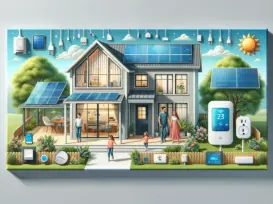Grus Home Energy - home insulation
Maximizing Energy Efficiency with Proper Home Insulation
As energy costs continue to rise, homeowners are increasingly looking for ways to maximize energy efficiency in their homes. One of the most effective ways to achieve this is through proper home insulation. Insulation acts as a barrier between the interior and exterior of your home, helping to regulate the temperature and reduce the amount of energy needed to heat or cool the space.
There are several types of insulation available, each with its own set of benefits and considerations. The most common types of insulation used in homes include fiberglass, cellulose, spray foam, and rigid foam. Fiberglass insulation is made from tiny glass fibers and is one of the most cost-effective options available. Cellulose insulation is made from recycled paper products and is environmentally friendly. Spray foam insulation is a versatile option that can be used in hard-to-reach areas, while rigid foam insulation provides excellent thermal resistance.
Proper insulation placement is key to maximizing energy efficiency in your home. Insulation should be installed in attics, walls, floors, and crawl spaces to create a continuous barrier against heat transfer. The Department of Energy recommends that attics be insulated to a minimum of R-38, while walls should have an R-value of at least R-13 to R-21, depending on the climate zone.
In addition to reducing energy costs, proper insulation can also improve the comfort of your home. By maintaining a consistent temperature throughout the space, insulation can help eliminate drafts and cold spots, creating a more comfortable living environment. Insulation can also help reduce noise transfer between rooms, creating a quieter and more peaceful home.
To ensure that your home is properly insulated, it is recommended to work with a professional insulation contractor. A contractor can assess your home’s insulation needs, recommend the appropriate type and amount of insulation, and ensure that it is properly installed. Additionally, a professional contractor can help you take advantage of available rebates and incentives for energy-efficient upgrades.
In conclusion, maximizing energy efficiency in your home through proper insulation is a smart investment that can lead to long-term savings and improved comfort. By choosing the right type of insulation and working with a professional contractor, you can create a more energy-efficient and comfortable home for you and your family.
©2025 All Rights Reserved. Grus IoT Co.,Ltd.
